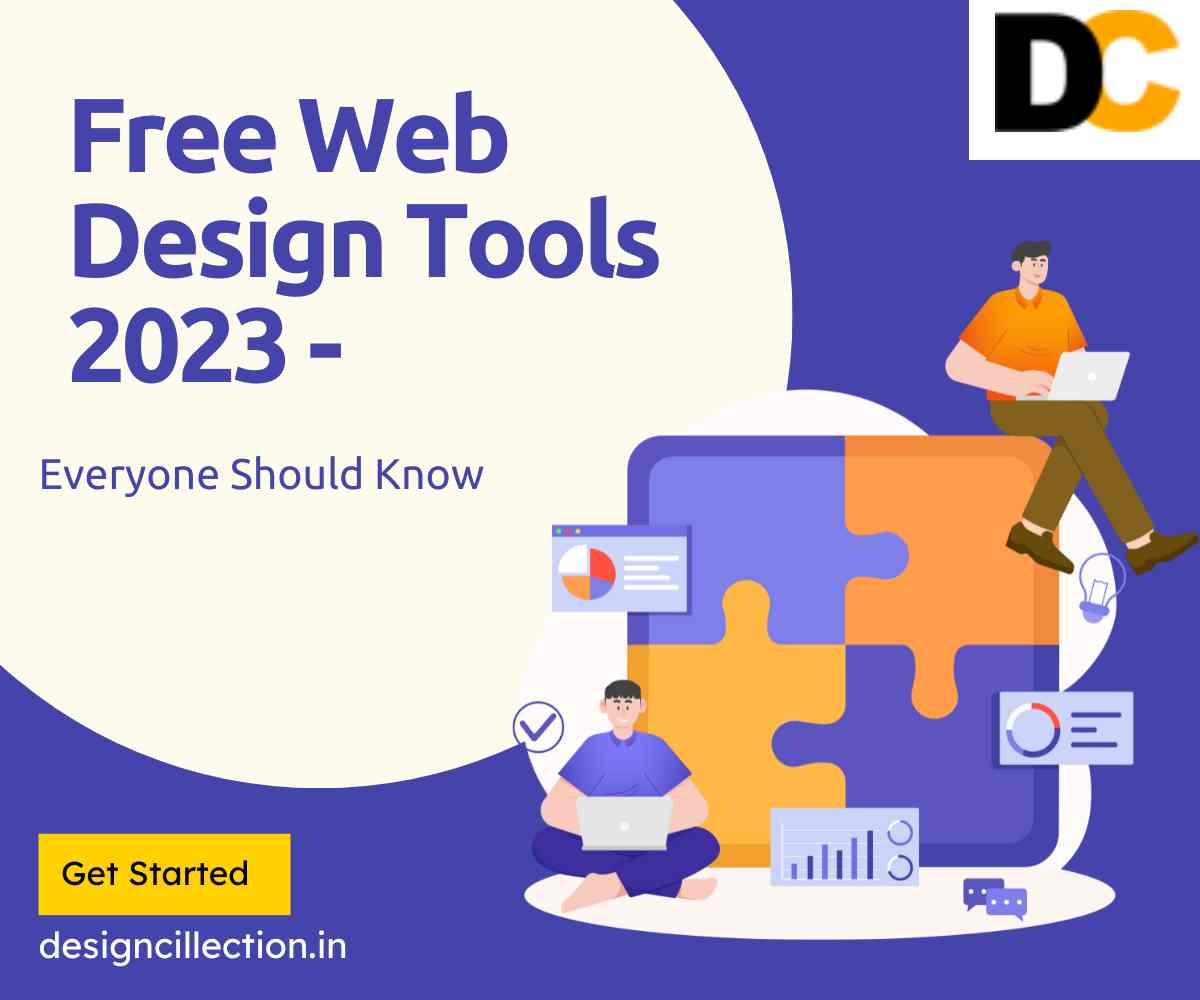Creating Stunning Websites for Free: A Comprehensive List of Must-Have Web Design Tools for 2023

Free Web Design Tools 2023 – Everyone Should Know
Web design is evolving at a rapid pace, and having the right tools can make a significant difference in creating visually appealing and functional websites. In 2023, free web design tools are becoming more powerful and accessible, allowing designers of all levels to create professional-grade designs. This guide explores the best free tools available for web design and how they can transform your workflow.
1. Canva: A Versatile Design Tool
Canva has become a favorite for both professional and beginner designers. With its user-friendly interface and pre-designed templates, Canva is ideal for creating graphics, banners, and social media posts. Its drag-and-drop feature simplifies the design process, making it accessible to anyone.
Why Choose Canva?
Canva offers a free plan that includes a vast library of elements, fonts, and templates. It’s perfect for web designers looking to create custom visuals without expensive software.
2. Figma: Collaborative Design at Its Best
Figma is a leading web design tool that emphasizes collaboration. This browser-based tool allows teams to work together in real time, making it easy to share and refine designs. Its free plan includes most of the essential features needed for professional web design.
Key Features of Figma
Figma offers vector editing, prototyping, and design libraries. Its cloud-based nature ensures that your designs are accessible from anywhere.
3. GIMP: Free Photo Editing
GIMP is a powerful open-source image editing tool that rivals premium software like Photoshop. It is highly versatile, making it perfect for editing photos, creating logos, and designing web assets. Despite being free, it offers advanced features for professional-grade editing.
Advantages of Using GIMP
GIMP supports various file formats and offers tools like layers, masks, and brushes. It’s an excellent choice for designers on a budget who need robust editing capabilities.
4. WordPress: The Leading CMS
WordPress powers over 40% of the web and remains one of the most popular platforms for creating websites. Its free plan allows users to set up a basic website, and its extensive library of plugins and themes makes customization easy.
Why Use WordPress?
WordPress is beginner-friendly and scalable, catering to both small blogs and large e-commerce sites. Its open-source nature ensures flexibility and freedom in web design.
5. Inkscape: A Free Vector Graphics Editor
Inkscape is an open-source vector graphics editor that is ideal for creating scalable graphics. From logos to illustrations, Inkscape provides all the tools needed for vector design. It is a great alternative to paid software like Adobe Illustrator.
Key Features of Inkscape
Inkscape includes tools for drawing, node editing, and object manipulation. Its community support ensures regular updates and new features.
6. Wix: Free Website Builder
Wix is a popular website builder that offers a free plan. It provides an intuitive drag-and-drop interface, making it easy to create professional websites without coding. Wix also includes hosting and domain services, simplifying the process further.
Benefits of Wix
Wix provides a range of templates and features like SEO tools and e-commerce integrations. Its free plan is perfect for small projects or personal websites.
7. Google Fonts: Free Typography for Web Design
Typography is a crucial element of web design, and Google Fonts offers a vast collection of free fonts. With hundreds of options, designers can easily find the perfect typeface for their project.
How to Use Google Fonts
Google Fonts can be integrated into websites with ease by embedding the provided code. This ensures your text looks polished and professional.
8. Unsplash: Free Stock Photos
High-quality images can enhance the visual appeal of a website, and Unsplash provides a vast library of free stock photos. These images are royalty-free, making them perfect for both personal and commercial projects.
Why Use Unsplash?
Unsplash offers professional-grade photos across various categories. Its easy-to-navigate platform ensures designers can find the right image quickly.
9. Bootstrap: Simplified Web Development
Bootstrap is a free front-end framework that helps developers create responsive websites quickly. It includes pre-designed components and templates, saving time on coding and design.
Bootstrap’s Key Features
Bootstrap offers grid systems, pre-built components, and CSS customization. It’s a must-have for designers focusing on responsive web design.
10. Grammarly: Perfect Your Content
Content is a vital part of web design, and Grammarly ensures your text is error-free. This free tool checks for grammar, punctuation, and style, helping you create professional and polished content for your website.
How Grammarly Supports Web Design
Grammarly integrates with browsers and editing software, offering real-time suggestions for improving your content’s quality.
Conclusion
These free web design tools in 2023 offer unparalleled features and accessibility for designers of all levels. From creating visuals with Canva to editing images in GIMP, these tools cater to various aspects of web design. Leveraging these resources can significantly enhance your productivity and the quality of your projects. Whether you’re a beginner or a professional, these tools ensure that budget constraints won’t limit your creativity.
For more insights into web design tools, visit Top Trends in Web Development 2023 or check out Contact Us for professional design services.
If you’re looking to learn web design skills, check out Udemy’s Web Design Courses or W3Schools Web Design Tutorials.